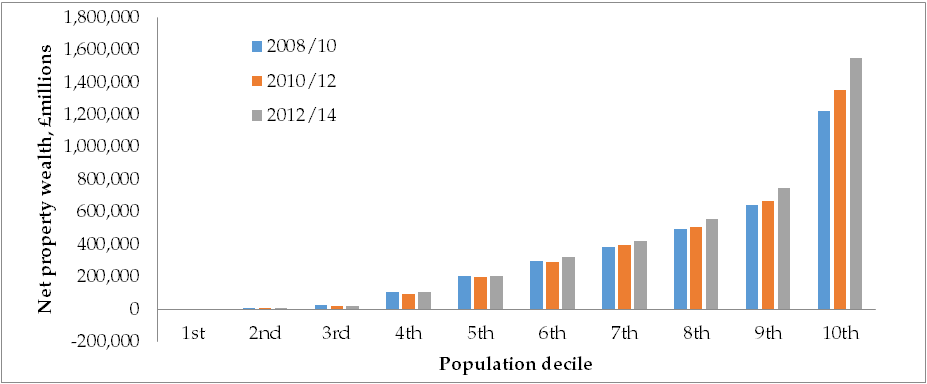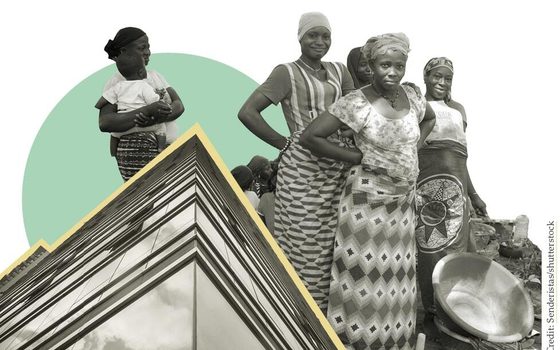We need to talk about wealth
Politicians have dodged the question for too long
16 June 2017
Over the May bank holiday I helped an old school friend move house. Having lived in London since university, she’s finally resigned herself to the fact that London rent is unsustainable. Both she and her partner have degrees and professional jobs and although they want to start a family, they couldn’t face the insecurity of moving house every time they face a rent hike. So, they decided to move back in with her parents to save for a deposit.
As we cleared out her childhood bedroom, we talked about how, at 33, this wasn’t where she’d hoped to be. She was disappointed at the blow the move would have on her career and worried about the strain on her relationship of living with her parents. She was also sad to be leaving friends – many of whom had been given, loaned, or inherited enough money from family to get themselves on the housing ladder.
For many in my generation, opportunities are determined more by wealth than by education or even income. That’s not just unfair, it’s also damaging to our economy and our health.
The skewed distribution of wealth in our society, in particular property wealth (figure 1), distorts the housing market and destabilises our financial system. It leaves more people than ever without the savings that could act as a safety net when work is precarious or life throws up unexpected costs; a late pay-cheque, broken car or family funeral are enough to throw them into the stress and ill-health of spiralling debt. While the growth in income inequality over the past 30 years has slowed, wealth inequality is much higher than income inequality and is on the rise.
Figure 1: Net property wealth by decile, 2008 – 2014

Source: Wealth and Assets Survey 2015C in Ryan-Collins et al (2017) Rethinking the Economics of Land and Housing, Zed Books, London
But for far too long, politicians and political commentators have tip-toed around the issue.
Little is said of the systems that suck wealth from younger to older generations, or from debtors to lenders, or between the north and south of the UK’s staggering regional divides. Newspapers extol the virtues of equal opportunity, whilst simultaneously arguing against ‘death taxes’ and ‘garden taxes’ as they violate our freedom to pass on our wealth to our children, with no recognition of any contradiction.
It’s time for that to change.
This election put wealth firmly on the political agenda. While there were clear weaknesses in the Tories’ proposal that the cost of social care should be recouped from peoples’ estates after death based on the lottery of whether or not they get dementia (or another chronic condition requiring high cost care), it had the right idea at its core. Rather than sitting as an asset, wealth can and should be used to provide the services and goods we need to improve lives, now. Meanwhile Labour included the increasingly popular land value tax and it’s now being trialled in London.
Everyone must now recognise what most people have realised for decades– that wealth founded on the lottery of birth and then exacerbated by a broken housing market and rigged financial systems should not be immune to the taxes that pay for our public services.
“The palpable injustice of the generational wealth divide tipped young people into voting for a break from business as usual”
Wealth inequality cuts two ways: the divide between rich and poor families and also between generations.
Age was the determining factor in this election’s unexpected results. And I’m not surprised. The palpable injustice of the generational wealth divide was one of the things that tipped young people into voting for a break from business as usual.
But it would be a mistake to characterise this as generations pitted against each other. We’re not bitter that our baby-boomer parents had it easier on the housing ladder. And most parents who do own wealth sincerely want to pass it on to their children. But with increasing life expectancy, wealth is many peoples’ insurance policy against a social care system in crisis. And at the same time, longer life expectancy means wealth moving more slowly from generation to generation even in families lucky enough to have that flow.
A new politics and economics has to go where the biggest wealth inequalities lie and find solutions. We need to tax wealth, and we need to break it up. That requires action from top to bottom.
Politicians should be focussing on reforming the banks so that they support people and productive businesses, not shareholders; and fixing the housing and land market to create homes, not assets. As individuals and communities we can be fighting against the sale of public land, or developing more co-operative forms of housing ownership.
Many of these solutions aren’t new; at the New Economics Foundation we’ve been advocating them for decades. What is new is that they can no longer be ignored.
Topics Inequality






